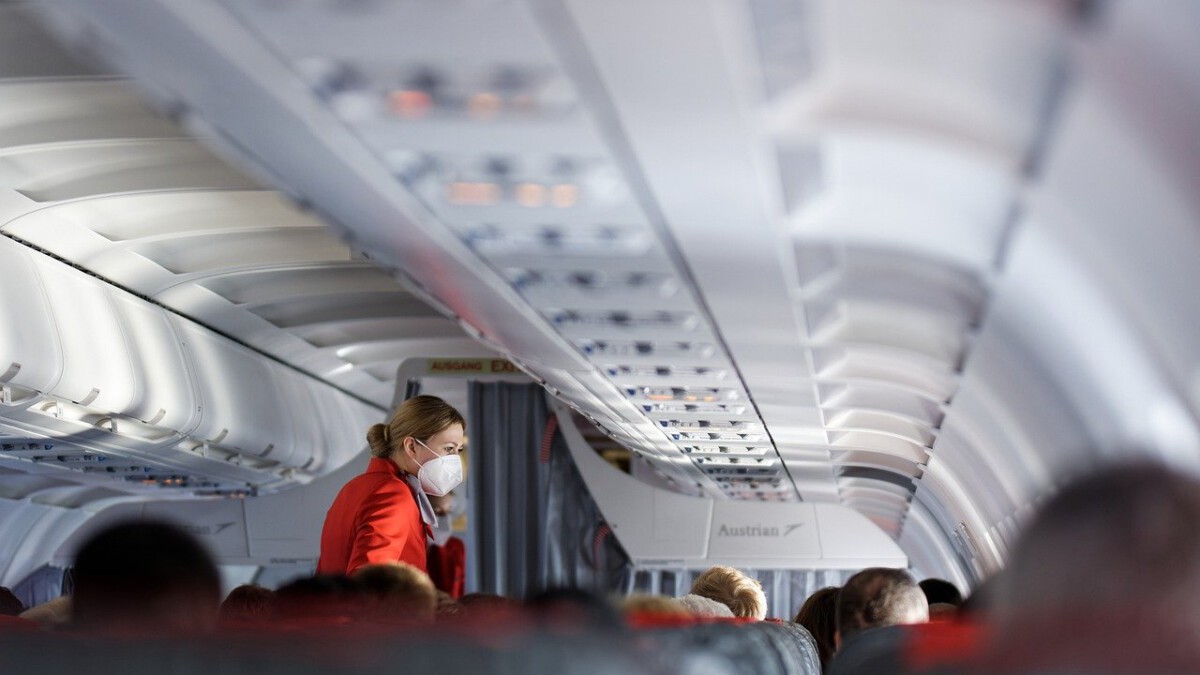Enhanced Seating: No Longer a Backbreaking Bargain

It’s almost shocking to see how far budget airlines have come with their seating options in 2025. Gone are the days of cramped, rigid seats and aching knees. Ryanair and EasyJet, two giants of the no-frills world, have introduced ergonomic seats with extra legroom, adjustable headrests, and even softer cushioning. This move isn’t just about aesthetics; it’s grounded in real demand. According to a Skytrax 2024 survey, a whopping 65% of passengers now say seat comfort is their top priority when booking flights. For many, flying budget is no longer a sacrifice for comfort, but a surprisingly pleasant experience. The airlines discovered that satisfied, comfortable passengers are more likely to become loyal customers and share positive reviews. It’s a bold new era where the ‘cheap seat’ doesn’t mean a ‘bad seat’ anymore.
In-Flight Entertainment: Turning Boredom Into Delight

Budget airlines are now transforming the in-flight experience by offering entertainment systems traditionally reserved for pricier carriers. JetBlue and Spirit Airlines have rolled out personal screens loaded with movies, TV shows, and interactive games. The International Air Transport Association (IATA) reported in 2025 that 70% of travelers actively seek out airlines with solid entertainment options. This change caters especially to families, business travelers, and anyone facing a long-haul journey. Streaming services, Wi-Fi packages, and even curated music playlists are now part of the budget airline offering. Passengers are no longer forced to bring their own entertainment; the airlines are making sure your journey is as entertaining as possible. This simple shift is winning over passengers who previously avoided low-cost airlines for fear of monotony.
Cabin Crew Training: Service With a Smile—and Skill

The attitude and professionalism of cabin crews have become a new battleground for comfort. Frontier Airlines, among others, has invested heavily in advanced training for their staff, focusing on hospitality, conflict resolution, and cultural sensitivity. According to the Airline Passenger Experience Association (APEX), well-trained crews increase passenger satisfaction scores significantly. Travelers now report feeling more respected and well-cared for, even on short flights. Crew members are trained to handle everything from nervous flyers to medical emergencies with empathy and efficiency. Enhanced service has become a signature of many budget airlines, dispelling the myth that lower prices mean lower standards of care. Passengers notice when a flight attendant makes them feel at home, and that positive feeling turns into brand loyalty.
Health and Safety: Safeguarding the Skies

In the wake of the pandemic, health and safety are at the forefront of every traveler’s mind. Budget airlines are not cutting corners here. Wizz Air, for example, has implemented hospital-grade cleaning protocols, contactless boarding, and provided passengers with complimentary sanitizing wipes. The Global Business Travel Association (GBTA) reported that 80% of travelers in 2025 feel reassured when airlines make safety visible and accessible. From HEPA air filtration to extra cleaning between flights, these airlines are doing everything possible to keep passengers safe. This dedication to cleanliness isn’t just a trend—it’s a new standard. Travelers now expect it, and airlines are eager to deliver, knowing it directly affects their reputation and bottom line.
Flexible Booking: Freedom to Change Plans

Flexibility has become a cornerstone of comfort for budget travelers in 2025. More and more, airlines are offering generous policies for cancellations, rescheduling, and even last-minute changes. Expedia’s 2025 report highlights that 75% of travelers prioritize airlines with adaptable booking options. This shift is a direct response to the unpredictability of modern travel, from sudden work obligations to global events. Passengers appreciate not being penalized for circumstances beyond their control. This flexibility not only builds trust, but also attracts new business from travelers who previously avoided budget airlines due to rigid policies. The freedom to change plans without hefty fees is now a key selling point for the industry.
Loyalty Programs: Making Every Mile Count

Budget airlines are now playing the loyalty game, launching reward programs that keep passengers coming back. Southwest and Allegiant Air have introduced point systems where frequent flyers earn credits towards free flights, seat upgrades, or bonus perks. According to the Travel Industry Association, 60% of travelers are more likely to stick with airlines that reward their loyalty. These programs have moved beyond simple discounts, offering access to priority boarding, complimentary snacks, and even exclusive deals on partner services. For regular travelers, this means that saving money doesn’t mean missing out on perks. Airlines are discovering that small incentives can lead to big business, turning one-time fliers into lifelong fans.
Food and Beverage: Upgrading the Menu

The stereotype of bland, pre-packaged airline food is being challenged head-on by budget carriers. AirAsia and others have launched menus with healthier, tastier options, including vegetarian, vegan, and gluten-free meals. The Food and Beverage Association found in 2025 that 55% of travelers care deeply about the quality of in-flight food. Budget airlines are responding with fresh ingredients, unique snacks, and even local specialties to delight their passengers. Passengers can now pre-order gourmet meals or choose from a wider variety of drinks. This change is more than just a marketing gimmick; it’s a real response to passenger demand for better in-flight experiences, even at lower prices.
Technology Integration: Streamlining the Journey

Technology is revolutionizing the budget airline experience in 2025. Mobile apps allow for seamless check-in, real-time flight updates, digital boarding passes, and even in-app customer support. Deloitte’s research shows that 68% of travelers prefer managing their entire journey through their smartphone. Airlines are also experimenting with biometric identification, AI-powered chatbots, and virtual queuing to reduce stress and waiting times. These tech upgrades make everything faster, easier, and more transparent. In a world where convenience is king, tech-savvy airlines are earning high marks from passengers who value efficiency as much as comfort.
Sustainability: Greener Skies, Happier Flyers

Environmental responsibility is no longer just a buzzword for budget airlines—they are taking concrete action. EasyJet is leading the charge by investing in sustainable aviation fuel, while others are introducing carbon offset programs and reducing single-use plastics. The International Council on Clean Transportation (ICCT) highlights that eco-conscious travelers are actively seeking airlines with strong green credentials. Many airlines are also making their environmental efforts visible, sharing progress updates with passengers and inviting them to participate in offset initiatives. This commitment to sustainability is winning over a new generation of travelers who want their journeys to reflect their values.
Smart Cabin Design: Maximizing Space and Comfort

Budget airlines are rethinking every inch of the cabin to maximize comfort without sacrificing capacity. Modular storage bins, mood lighting, and even noise-reducing materials are being introduced to create a more pleasant atmosphere. Some airlines are experimenting with movable armrests and innovative seat layouts that provide more elbow room. Passengers are noticing the difference, with many reporting reduced stress and a more restful journey. Smart design choices allow airlines to offer comfort at a low cost, proving that innovation doesn’t always have to come with a high price tag.
Personalization: Tailoring the Experience

Personalization is becoming a big trend in 2025, with budget airlines using data to customize everything from pre-flight emails to in-flight entertainment suggestions. Travelers can now select their favorite snacks, choose seat preferences, and even pre-load entertainment options on their devices. Airlines are using passenger feedback to fine-tune services and offerings, ensuring that travelers feel seen and valued. This individualized approach not only enhances comfort but also helps airlines stand out in a crowded market. Passengers are delighted to find that even budget flights can feel uniquely their own.






